Search
JHU Leave of Absence Policy
JHU Leave of Absence Policy
Office of Student Affairs
JHU Leave of Absence Policy
There may be times when a Carey student needs to take a break from their academic work during the year. For any specific questions about taking a leave (including Required Leaves of Absence), visit the university Leave of Absence policy.
Applying for a Voluntary Leave of Absence
A Voluntary Leave of Absence (LOA) may be granted to Johns Hopkins Carey Business School students in appropriate circumstances following review of the student’s application from the LOA Committee.
Students seeking a voluntary LOA should speak with their academic advisor. Voluntary LOAs may be requested for appropriately documented reasons. These include medical issues, military service, political campaign participation, other personal opportunities, internship, or personal or financial hardship.
Voluntary LOAs are limited to one (1) academic year (two (2) consecutive academic semesters, for those JHU divisions that operate on a semester schedule), but Covered Students may apply for an extension of up to a full second year (two (2) additional consecutive academic semesters). LOAs may not be granted for more than two (2) years of academic terms in aggregate. Students who remain on leave for more than two (2) years will be considered to have withdrawn from their academic program and must apply to be reinstated to the University.
Students receiving financial aid and/or scholarships should contact the Office of Student Enrollment and Account Management with questions.
Following submission of a completed LOA application, students will be notified in writing of the approval or disapproval of their leave request.
Voluntary Leave of Absence Application
All students requesting a Voluntary LOA must complete the Application for a Student Leave of Absence. Additionally, students must submit supporting documentation based on the type of LOA and international citizenship.
-
Voluntary LOA Reasons
International Student
Personal Statement
Financial Difficulty
Personal or Family Hardship
Other Personal ReasonsNo
Yes
Yes
No
Financial Difficulty
Personal or Family Hardship
Other Personal ReasonsYes
Yes
Yes
Yes
-
Voluntary LOA Reasons
International Student
Letter or Verification from Armed Services
Financial Difficulty
Personal or Family Hardship
Other Personal ReasonsNo
Yes
Yes
No
Financial Difficulty
Personal or Family Hardship
Other Personal ReasonsYes
Yes
Yes
Yes
-
Voluntary LOA Reasons
International Student
Medical ConditionNo
Yes
Yes
No
Medical Condition Yes
Yes
Yes
Yes
Return to Study
Students must complete the online reinstatement application to return from a Voluntary LOA. The form must be accompanied by documentation (from one of the sources below) that explains what progress has taken place in the student’s absence that would enable them to be successful upon return. Students must submit a complete reinstatement application with all required supplement documentation in order for their application to be reviewed and approved.
If a student fails to return from an approved LOA and fails to timely respond to the University’s attempt to contact them, the student will be removed from their program of study. Students applying to return to study should refer to the following academic timeline:
| Semester of Return | Earliest Submission | Latest Submission |
|---|---|---|
| Fall 1 or 2 | March 15 | August 1 |
| Intersession | October 15 | December 1 |
| Spring 1 or 2 | October 15 | January 1 |
| Summer | March 15 | May 1 |
-
Voluntary LOA Reasons
Personal Statement
Financial Difficulty
Personal or Family Hardship
Other Personal ReasonsYes
Yes
-
Voluntary LOA Reasons
Letter or Verification from Armed Services
Financial Difficulty
Personal or Family Hardship
Other Personal ReasonsYes
Yes
-
Voluntary LOA Reasons
Medical Condition Yes
Yes
Yes
Yes
Extension Request for Voluntary Leave of Absence
Voluntary LOAs are limited to one (1) academic year but students may apply for an extension of up to a full second year. All students requesting an Extended Voluntary LOA must complete the Leave Extension Request Form. Additionally, students must submit supporting documentation based on the type of LOA and international citizenship.
-
Voluntary LOA Extension Reasons
International Student
Personal Statement
Financial Difficulty
Personal or Family Hardship
Other Personal ReasonsNo
Yes
Yes
No
Financial Difficulty
Personal or Family Hardship
Other Personal ReasonsYes
Yes
Yes
Yes
-
Voluntary LOA Extension Reasons
International Student
Letter or Verification from Armed Services
Financial Difficulty
Personal or Family Hardship
Other Personal ReasonsNo
Yes
Yes
No
Financial Difficulty
Personal or Family Hardship
Other Personal ReasonsYes
Yes
Yes
Yes
-
Voluntary Medical LOA Extension Reason
International Student
Medical Condition No
Yes
Yes
No
Medical Condition Yes
Yes
Yes
Yes
LOAs may not be granted for more than two (2) years of academic terms in aggregate. Students who remain on leave for more than two (2) years will be considered to have withdrawn from their academic program and must apply to be reinstated to the University.
International Students
International students in F-1/J-1 visa status must contact the Office of International Services (OIS) by emailing ois@jhu.edu prior to submitting the University Leave Request Form. OIS will advise you on the implications to your immigration status, the departure timeline once your leave of absence is in effect, and the necessary steps to take with our office once you are ready to return from your LOA. International students must attach a copy of that email communication as a supplemental document when submitting the University Leave Request Form.
Questions
General information about LOAs can be found in the university Leave of Absence policy. Students with specific LOA questions can reach out to their academic advisor. If you’re not sure who your advisor is, visit Finding Your Advisor.
CIL Leadership Resources
Leadership Resources
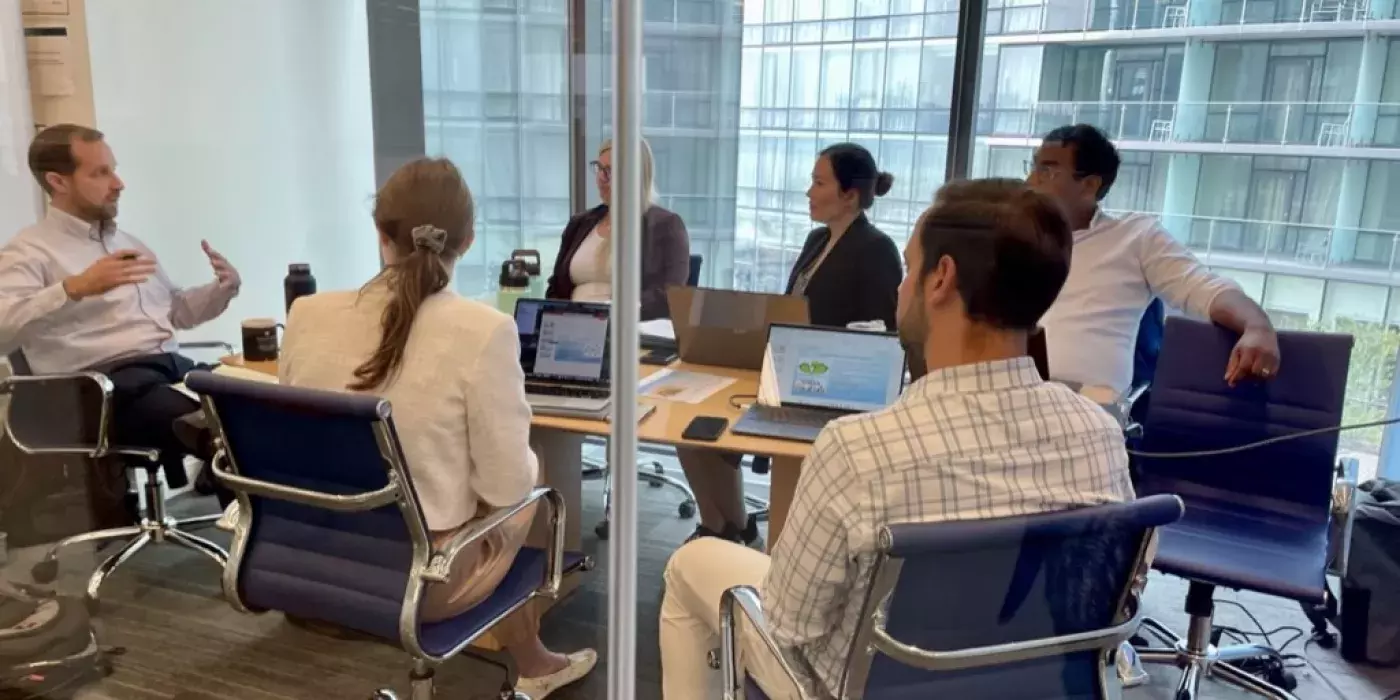
Leadership Resources
The Center for Innovative Leadership engages not only the faculty and students of Johns Hopkins University, but also acts as a resource to leaders across all industries and organizations, providing evidence-based guidance for leading in the modern world of work. From in-depth Field Guides to cutting-edge Research Briefs, the Center produces a range of resources translating faculty research and expertise into actionable insights for practicing leaders.
Field Guides
CIL designed the Field Guide series to help leaders navigate the increasingly complex world of work, armed with a nuanced understanding of key challenges identified in cutting-edge organizational research. Each Field Guide is designed to illuminate a core challenge facing today’s leaders and deliver effective, evidence-based guidance and practices for leaders to deploy in their own work. These in-depth resources are intended for use by leaders in all industries and at all levels of an organization, not only as a “how-to” guide for key leadership decisions and actions, but also as a broader resource for personal development, learning, and growth as a leader.

A Field Guide to
Leading Dynamic Teams
Leaders today face unique challenges and new questions about how their teams should work together – particularly as organizations move to more flexible work arrangements and temporary team structures.
The purpose of our Field Guide to Leading Dynamic Teams is to provide an accessible, practical resource for leaders to think innovatively about how they design and manage teams within their organization. The Guide highlights key practices that can be implemented quickly and seamlessly today as leaders reimagine how to best run meetings, share information, and allow for peer-to-peer leadership in a way that keeps employees engaged, fulfilled and productive.
Research Briefs
The Center frequently releases short Research Briefs, highlighting and summarizing CIL faculty research findings and how they impact the world of work. The briefs are designed to facilitate the rapid transfer of research-to-practice, helping leaders shape their practices with the latest findings in academic research.
Recent Research Briefs
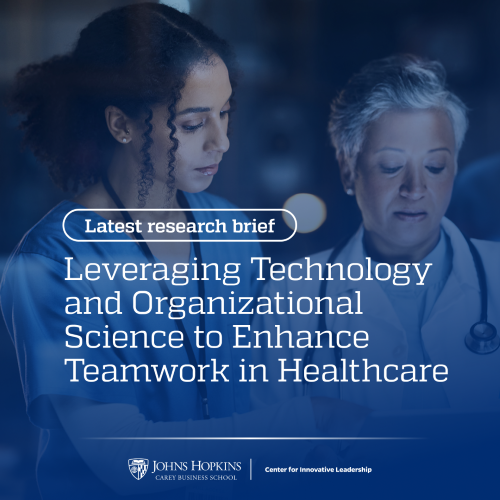
| Leveraging Technology and Organizational Science to Enhance Teamwork in Healthcare |
Remote Workforce Leadership Lessons from Online Collaboration Communities | 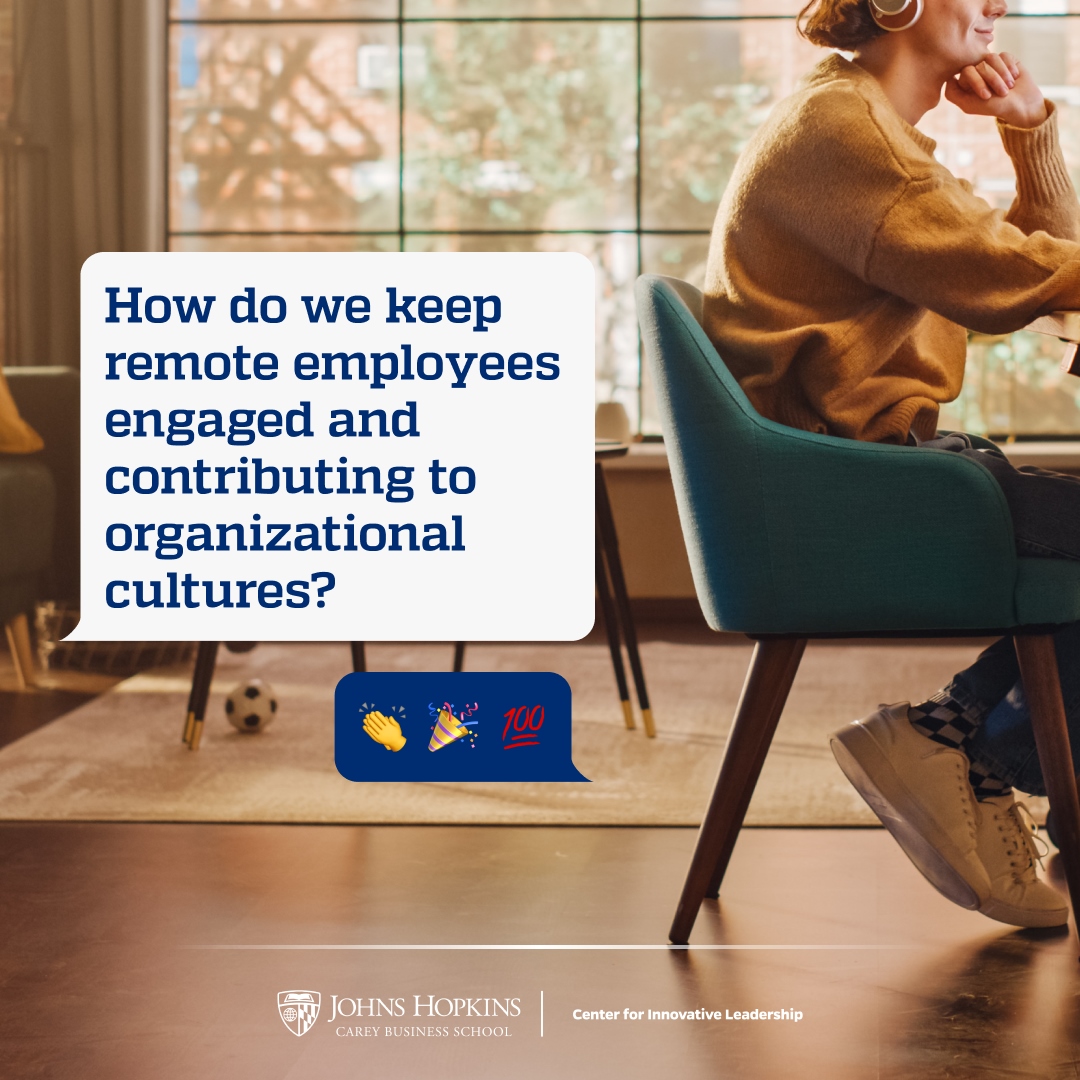
|
‘Moral Beacons’ Provide Ethical Leadership in the Workplace
| |
Ethical Leadership Strengthens Team Efficacy and Social Cohesion | 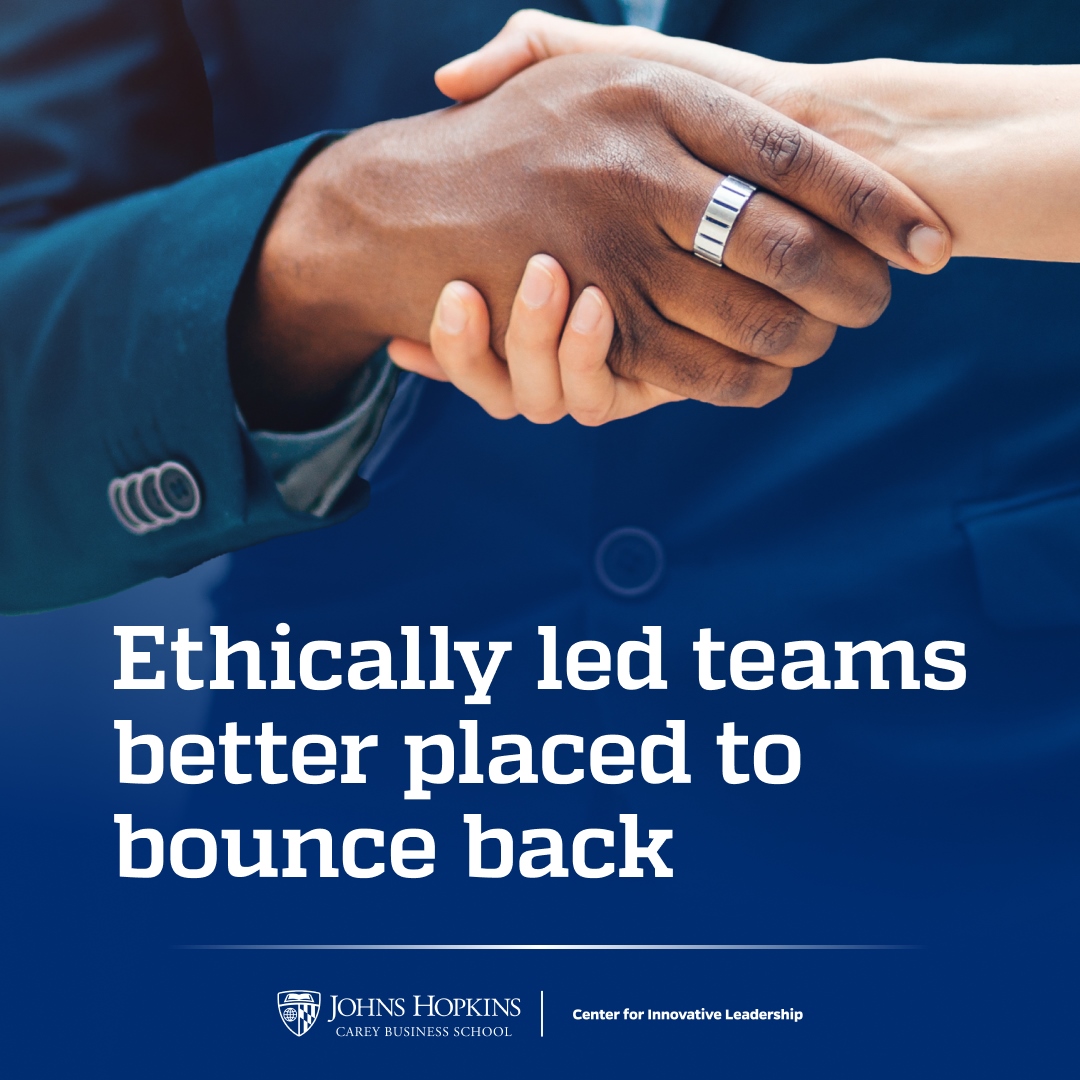
|
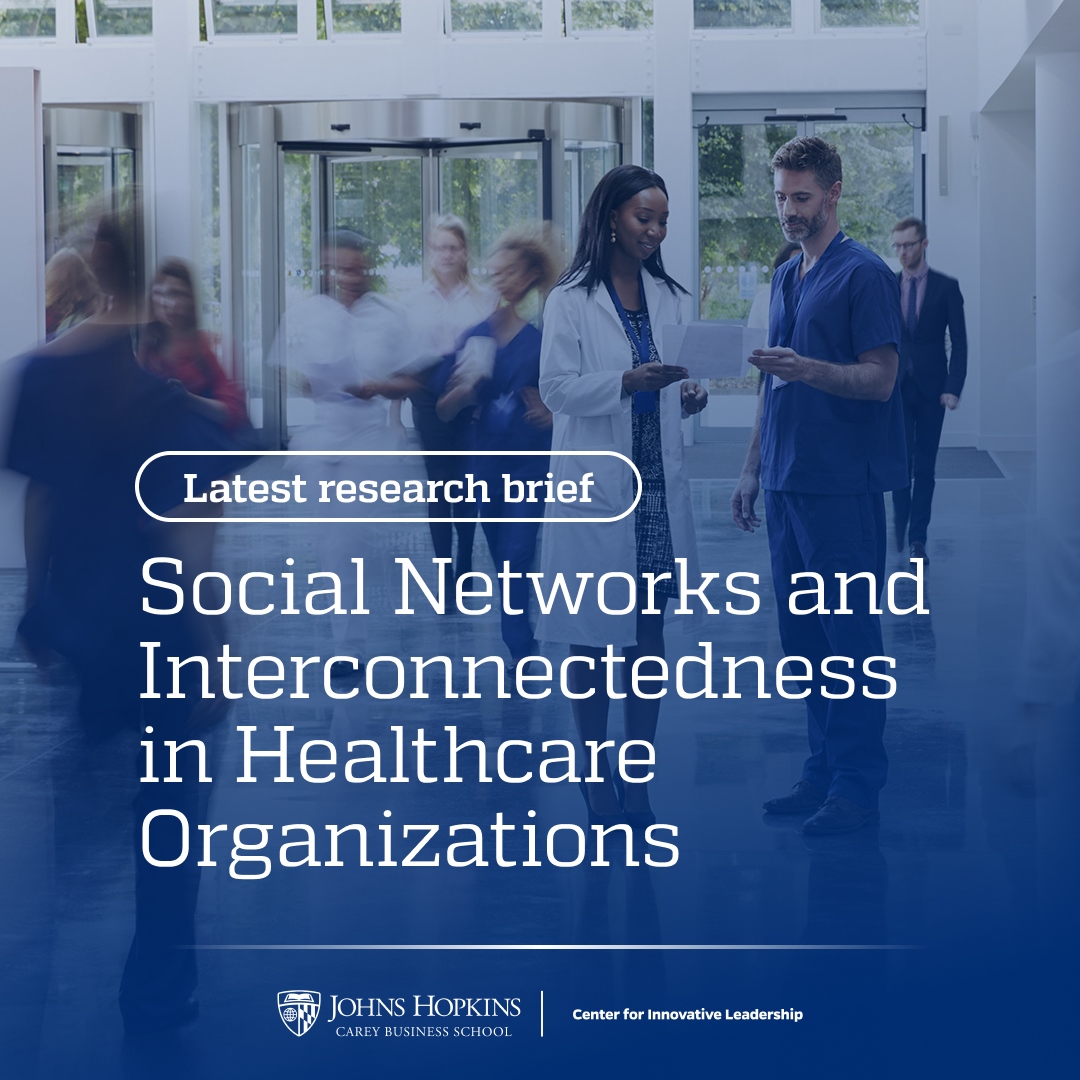
| Understanding the Nuances of Social Networks and Interconnectedness in Healthcare Organizations
|
Leadership Lessons for Multidisciplinary Teams in Healthcare and Beyond | 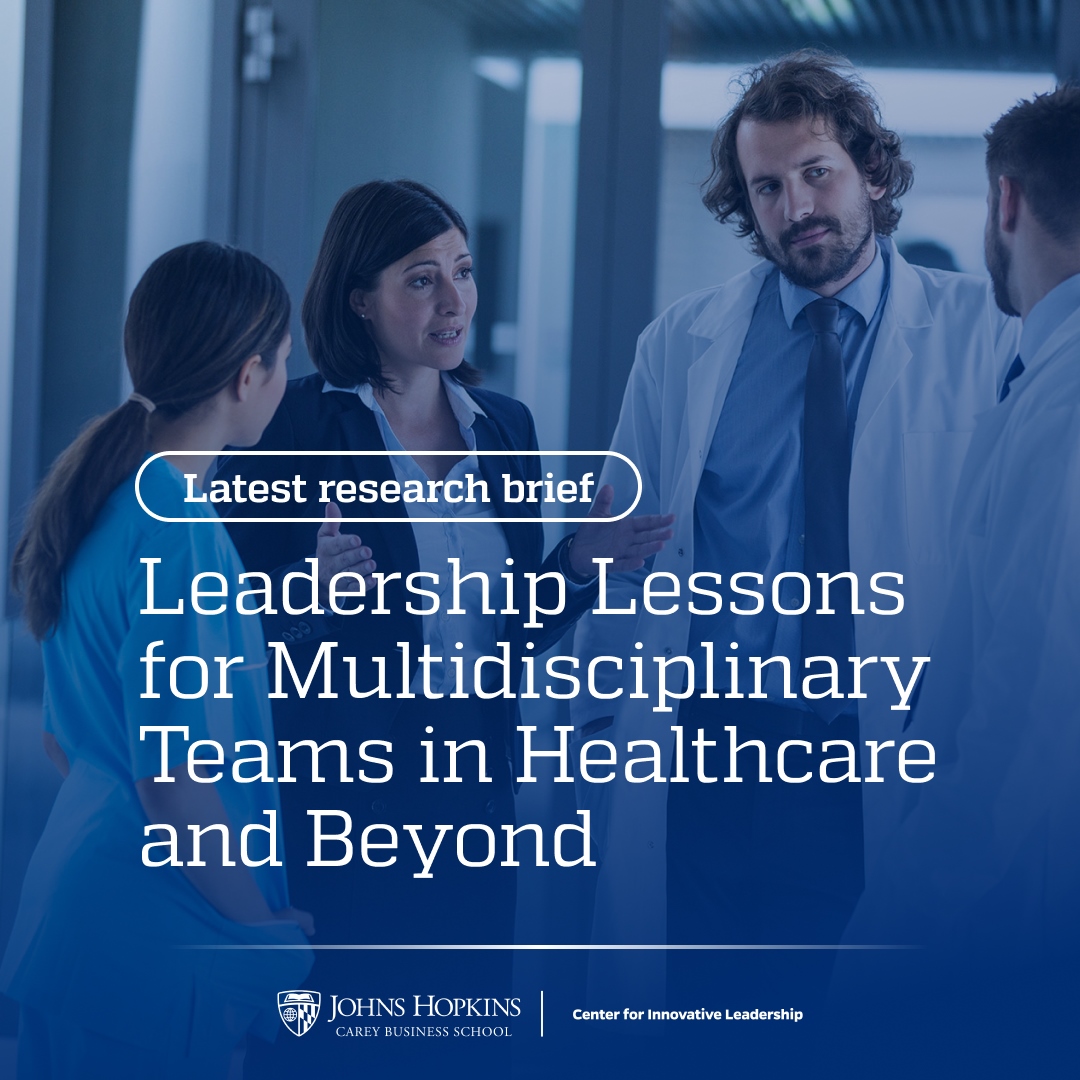
|
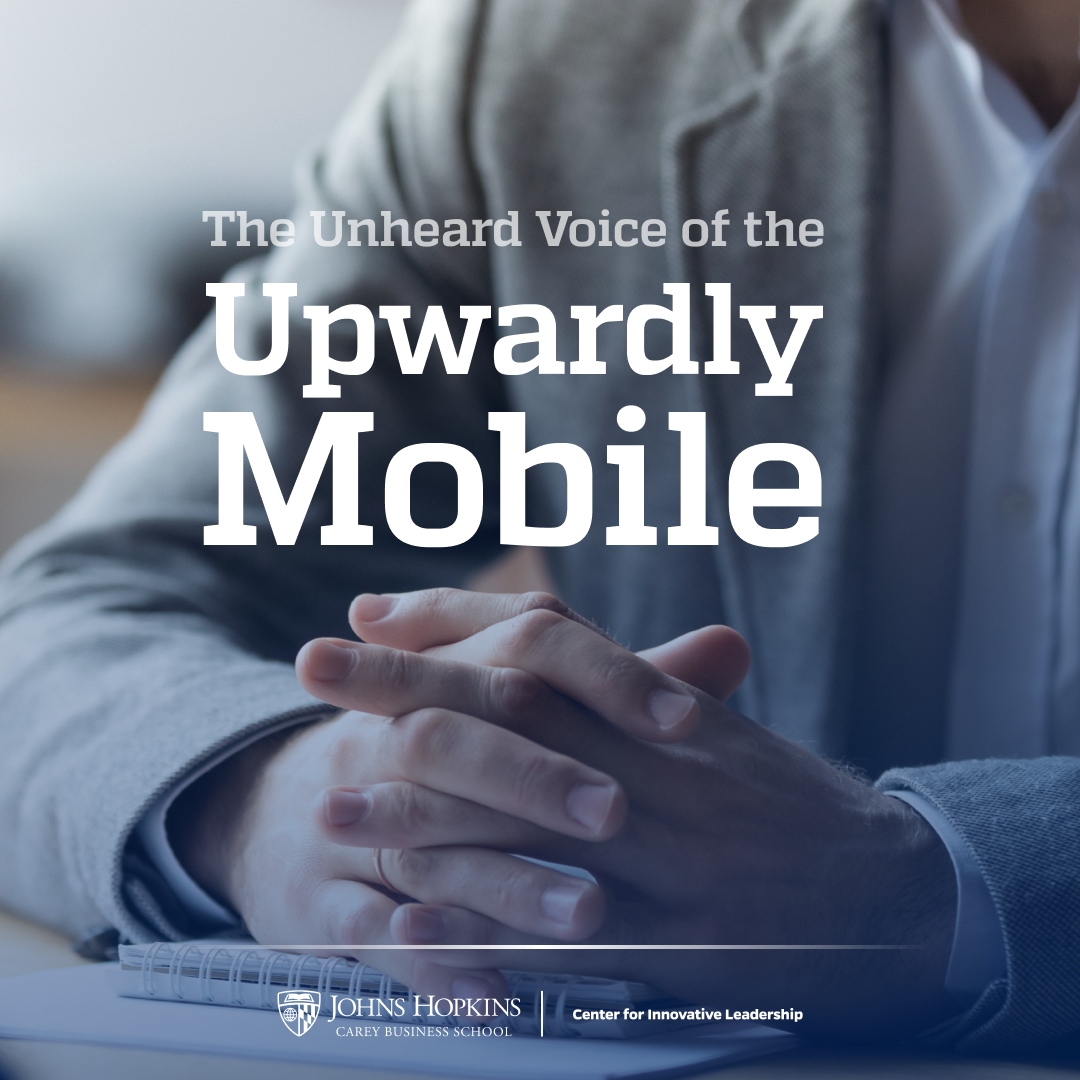
| The Unheard Voice of the Upwardly Mobile
|
Allyship for Gender Equity at Work | 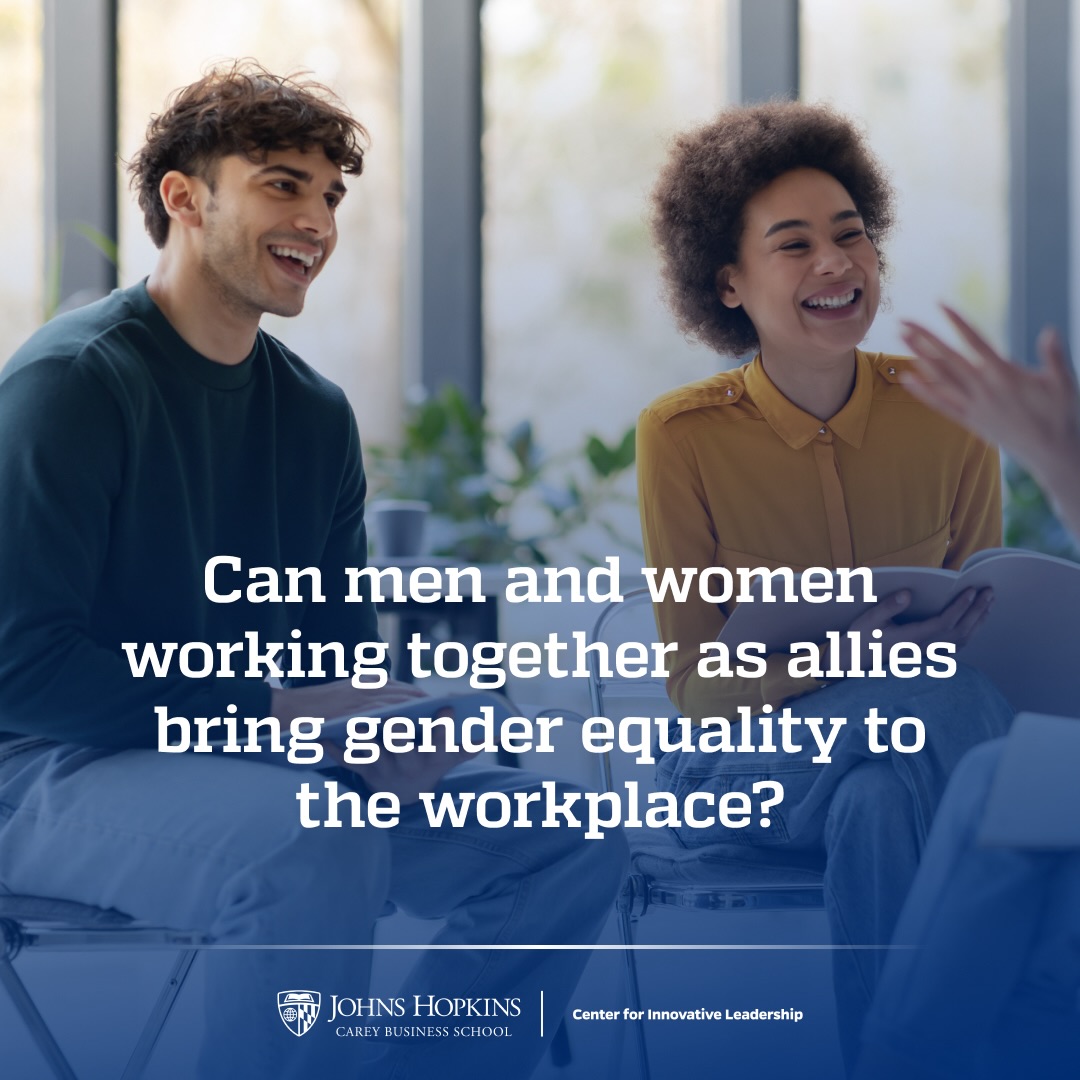
|
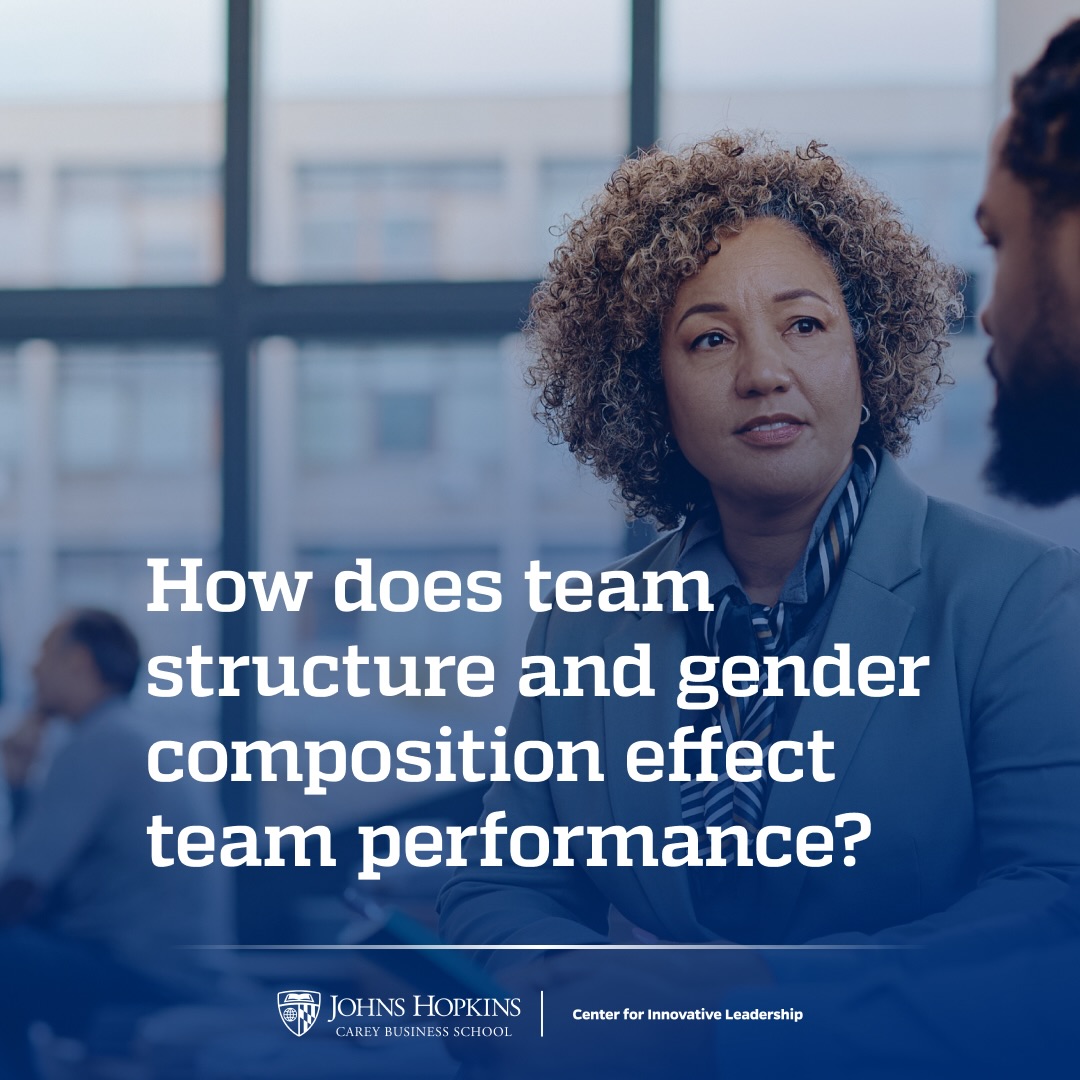
| How Structure and Gender Composition Effect A Team’s Collective Ability to Get Work Done |
The Value of Respect in Nurse-Physician Relations | 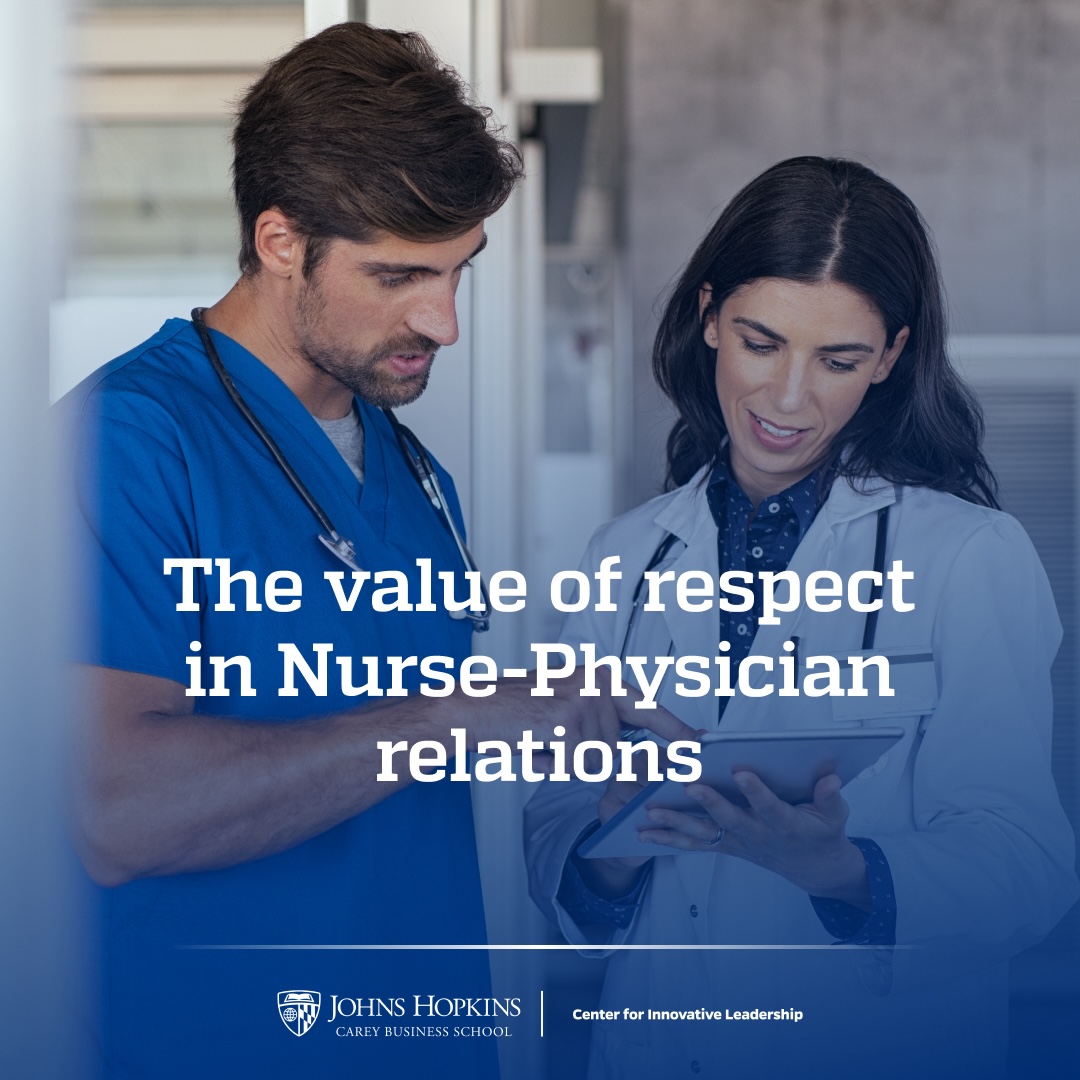
|
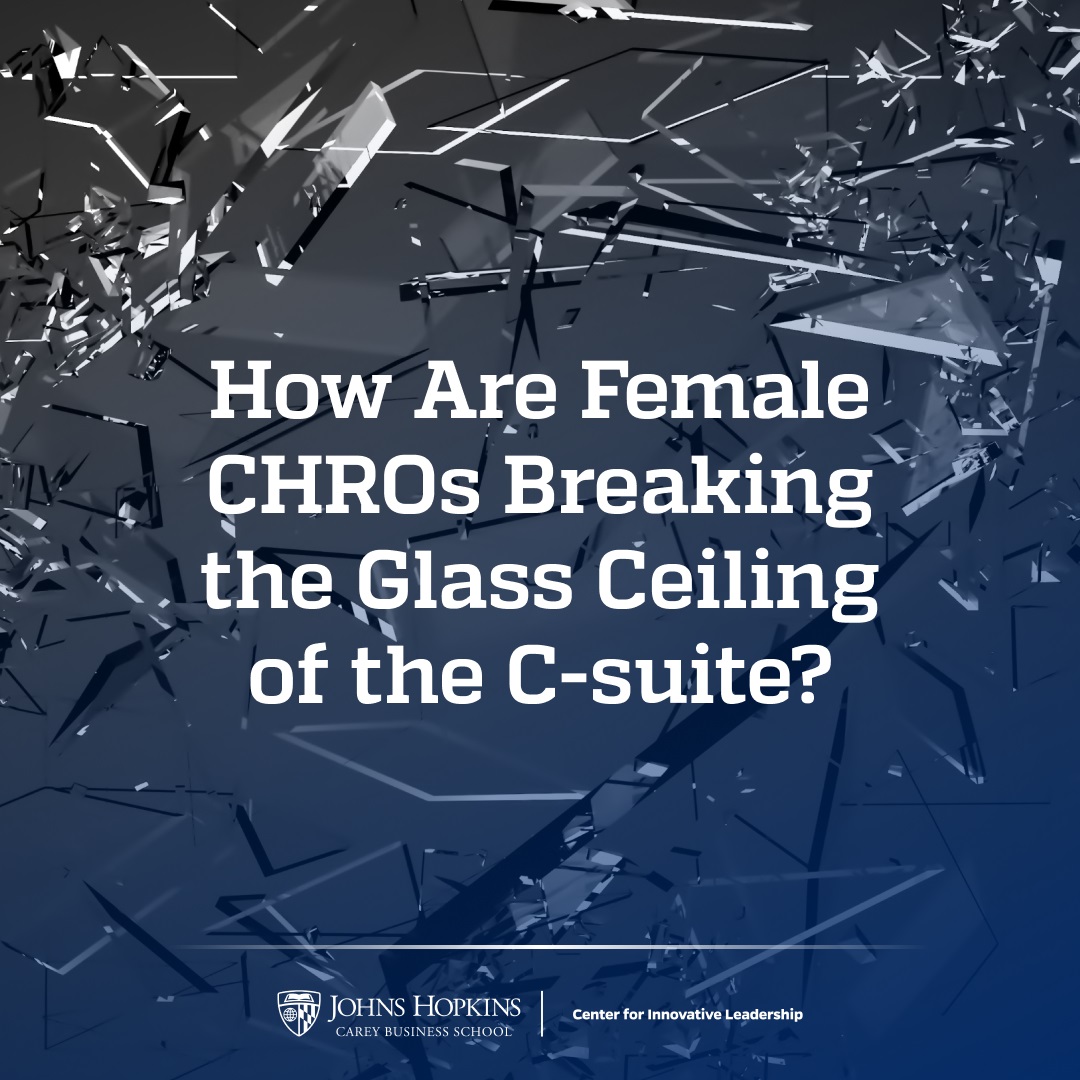
| How Female CHROs Break the Glass Ceiling of the C-suite |
What Can 50 Years of Leadership Communication Research Tell Us? | 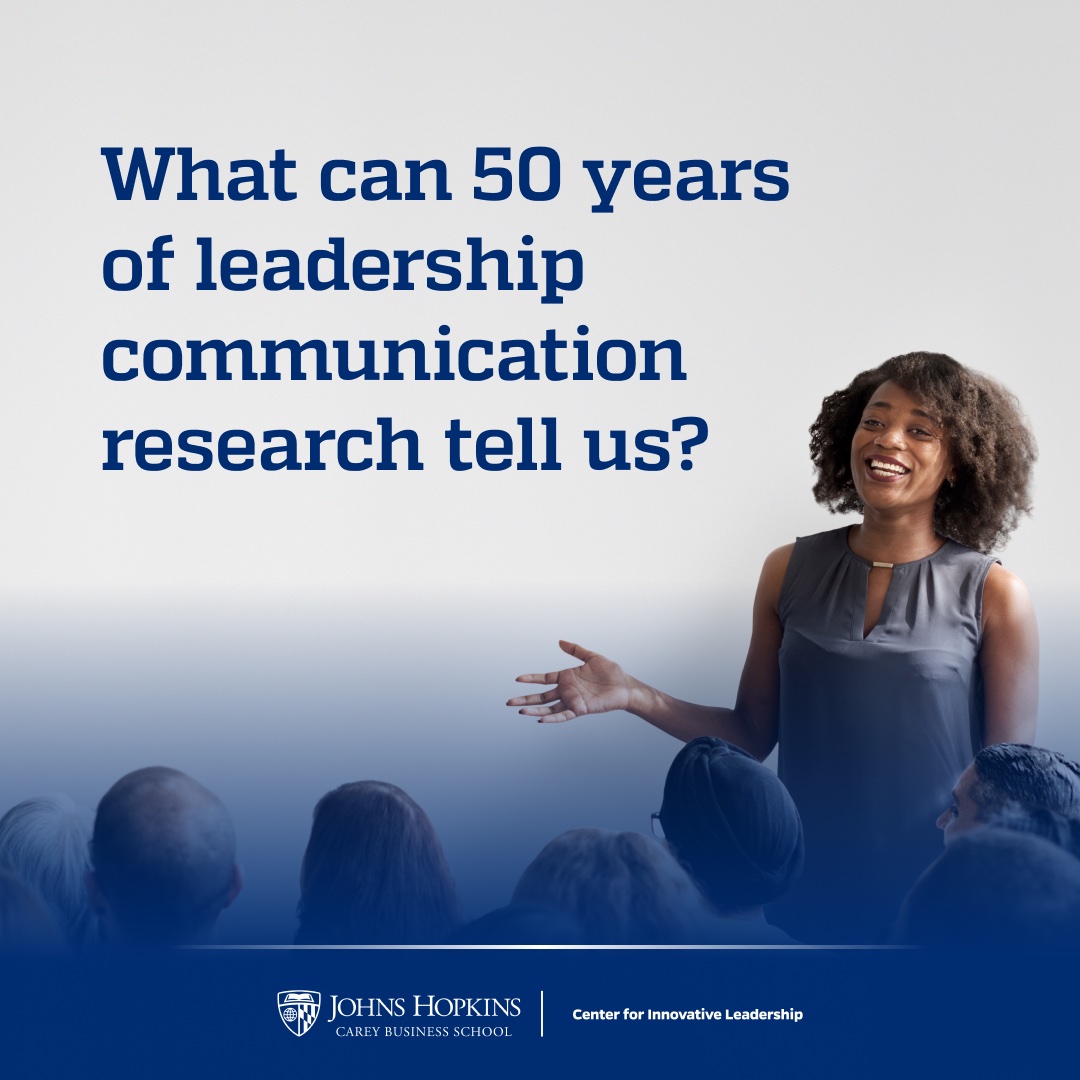
|
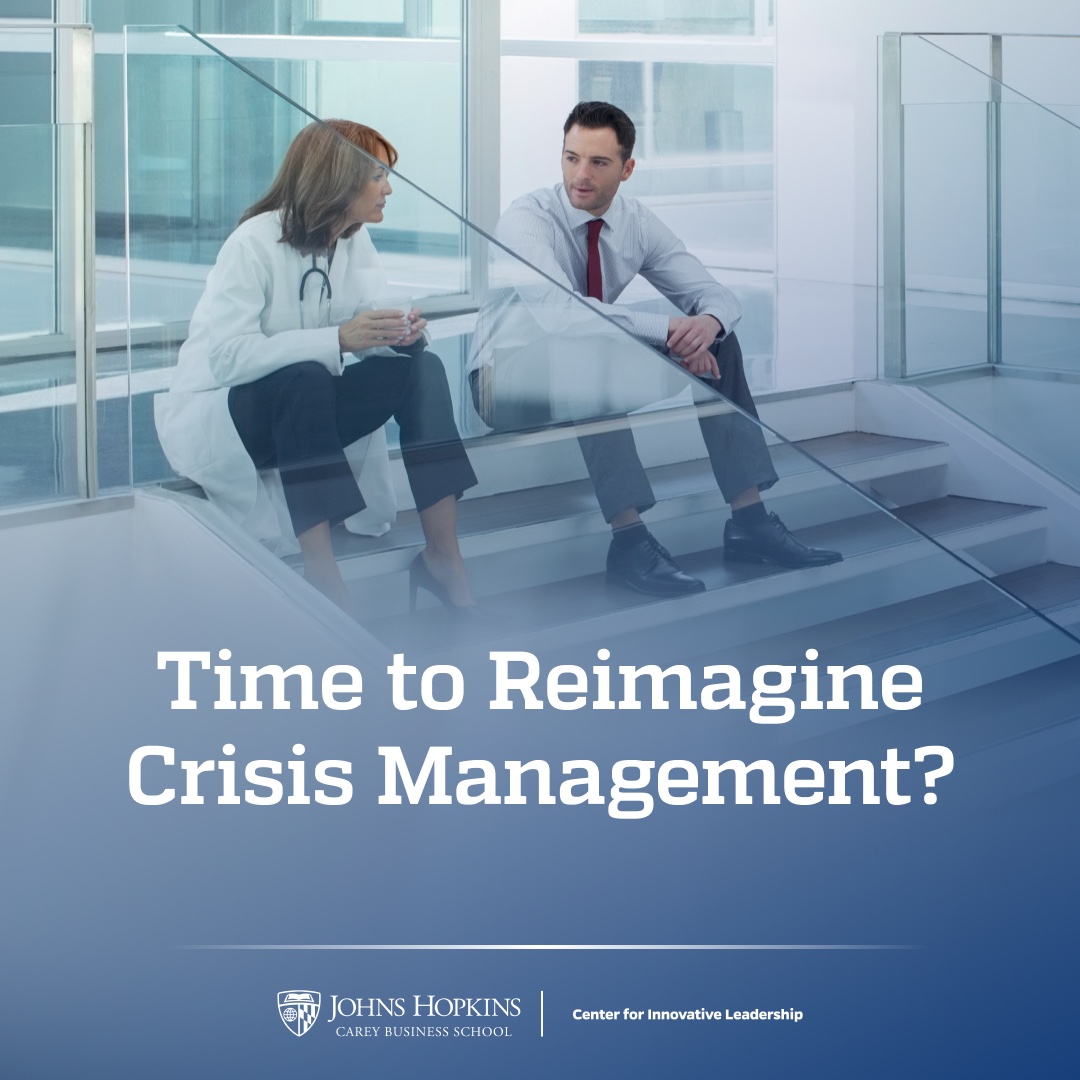
| Crisis Management Reimagined: Creativity at the Edge of Chaos |
The Restless Entrepreneur | 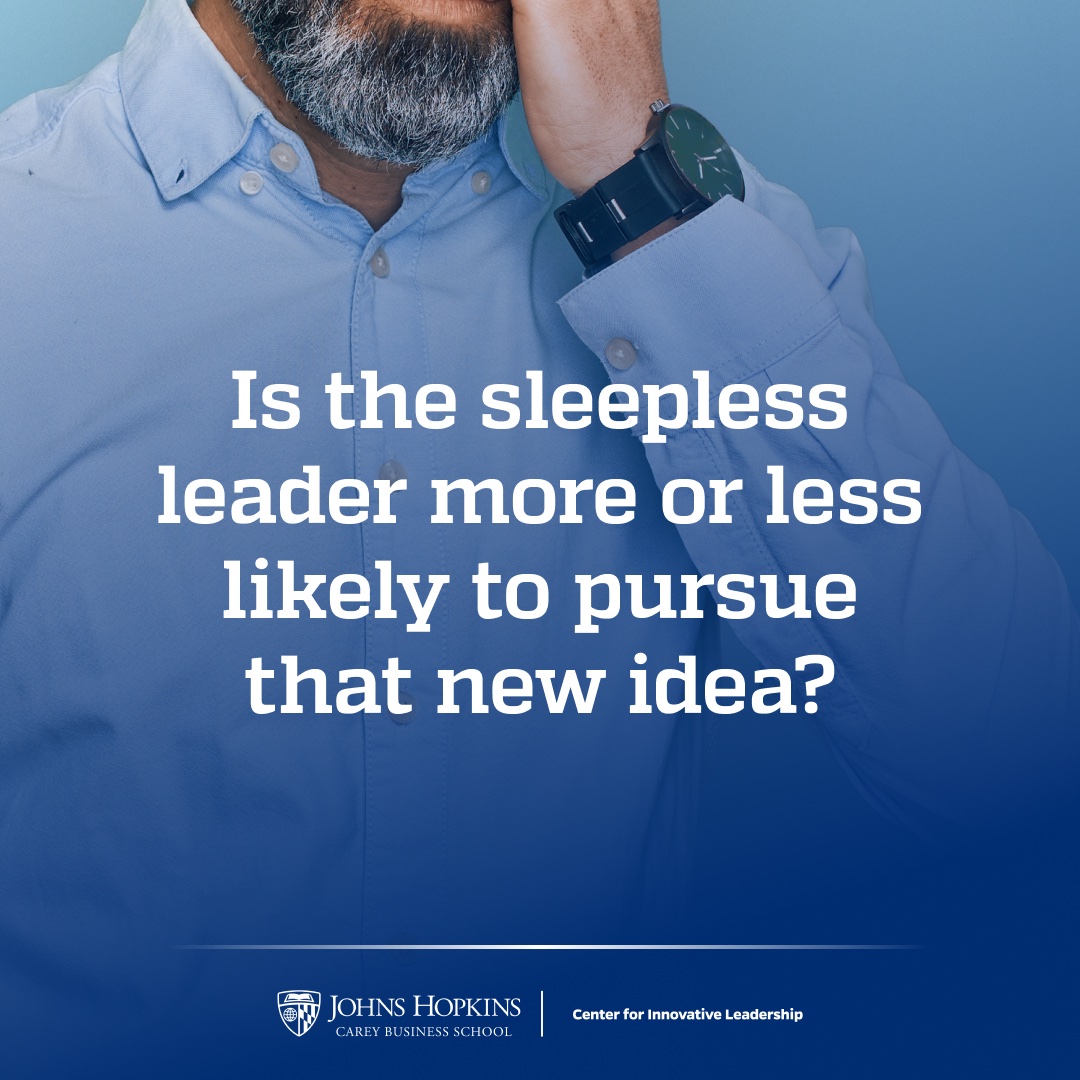
|
MBA/MA in International Relations
MBA/MA in International Relations
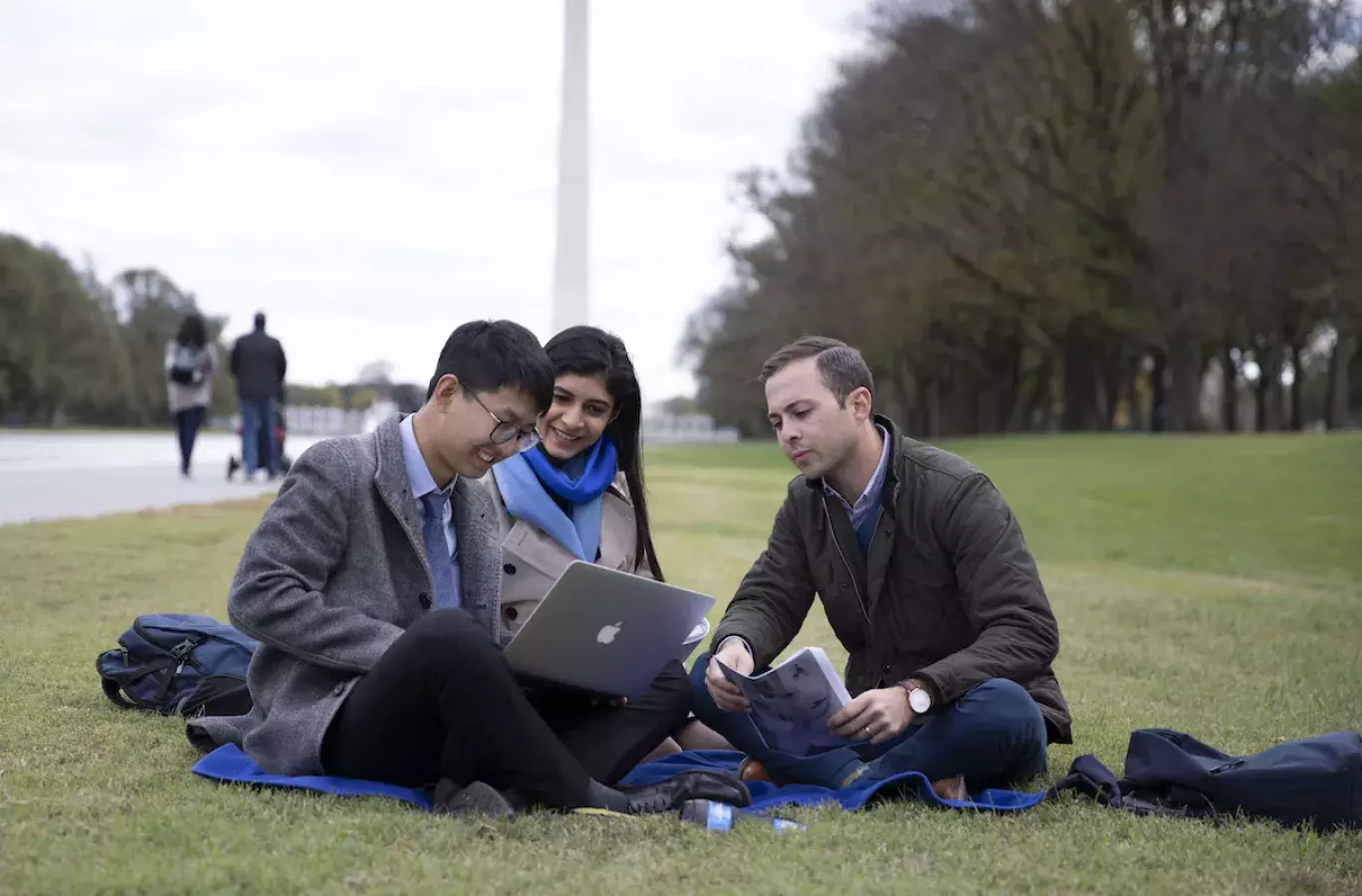
With the Master in International Relations, you will gain further professional and substantive insights by developing an extensive global mindset through functional and regional focus areas. The full-time MBA program is newly STEM-designated.
Program Details





Financial Aid & Scholarships
Program features
Two degrees, two networks
Expand your academic range and professional reach by harnessing the power of two leading Johns Hopkins institutions.
Experiential learning
Both Carey Business School and the School of Advanced International Studies offer multiple opportunities for experiential learning to develop skills like leadership and problem solving for complex world challenges.
Flexible sequencing
Customize the order in which you complete the MAIR and MBA to maximize your opportunities at each school.
Differentiate yourself
With two degrees from Johns Hopkins, you will stand out in a crowd across a global scale.
Curriculum
Build your expertise through a flexible and diverse curriculum from two innovative Johns Hopkins institutions. With the Master of Arts in International Relations, you will gain further professional and substantive insights by developing an extensive global mindset through functional and regional focus areas. Combine this expertise from one of the best schools for international relations with the leadership and analytic skills gained through the Johns Hopkins MBA. Graduate ready to make a lasting impact across the globe.
Our full-time MBA program is now STEM-designated
The latest edition of the Carey Business School University Catalog is available.
-
The MBA and Master in International Relations dual degree curriculum is designed with flexibility paramount across the three years of study. The Johns Hopkins MBA is 54 credits, 18 of which may be applied from the MAIR program. The MAIR program is 64 credits, 16 of which may be applied from the MBA. The MBA/MAIR requires a total of 118 credits.
You will start the dual degree program at Carey and complete the majority of the MBA coursework in the first year. During the second and third year, you will complete your coursework in the Master’s in International Relations and any remaining MBA courses.
Required courses
Carey Business School (MBA)
- Accounting Foundations
- Behavioral Science: Leadership and Organizational Behavior
- Behavioral Science: Negotiating Collaboratively
- Business Communication
- Competitive Strategy
- Data Science: Big Consulting Data Project
- Data Science: Statistics
- Finance
- Innovation Field Project (four credits)
- Marketing Management
- Microeconomics and Market Design
- Operations Management
- Professional Development for Career Success (non-credit)
- Five electives
School of Advanced International Studies (MAIR)
FUNCTIONAL FOCUS AREAS
- Development, Climate, and Sustainability
- International Economics and Finance
- Security, Strategy, and Statecraft
- States, Markets, and Institutions
- Technology and Culture
REGIONAL FOCUS AREA
- Africa
- The Americas
- Asia
- China
- Europe and Eurasia
- The Middle East
- U.S.
LANGUAGE TRAINING
Augment your degree in international relations and open doors to new professional possibilities through the study of a language. Our robust language studies program, emphasizing current political and economic topics, trains you to achieve proficiency in a non-native language.
- Arabic
- Chinese
- French
- German*
- Indonesian
- Japanese
- Korean
- Persian (Farsi)
- Portuguese*
- Russian
- Spanish
- Italian*
*Taught at SAIS Europe only. May be available through virtual instruction for students in Washington, D.C.
Program comparison
- In-person classes
- Graduate with two Johns Hopkins degrees
- STEM-designated MBA curriculum
- Complete both degrees in three years
- In-person classes
- Courses held in Washington, D.C.
- STEM-designated curriculum
- Complete your degree in two years
- Online, flexible format
- Asynchronous and/or fully synchronous courses
- Optional in-person experiences
- Complete your degree in two to three years
Focus on Experiential Learning
Building upon the leadership, economic analysis, analytical reasoning, regional expertise, and real-world problem-solving skills you will gain in the classroom, you will also gain hands-on experience through co-curricular and capstone programming such as study treks, career treks, practicum projects, and internships.
The capstone component enables you to focus on an experiential learning opportunity that will best complement your professional goals. Most capstone options culminate in a significant final report outlining their analysis and recommendations. Capstone options may include:
Practicum projects
Gain in-depth experience consulting for client organizations working to address real-word challenges. Draw on your qualitative and quantitative skills to analyze and identify client issues and make actionable recommendations to address those challenges.
Study trips
Conduct field research, engage with partner organizations, gain new perspectives on major global issues, and enhance your learning beyond the classroom. Recent study treks have taken students to Brazil, Cameroon, the Republic of Georgia, Japan, and Slovenia.
Internships
Augment your studies through an approved internship and gain hands-on experiencing in your desired field. (Note: The Offices of Co-Curricular and Experiential Learning and Global Careers will help support internship opportunities, but cannot guarantee internships capstones.)
Practical research papers
Author a substantial academic paper based on original research and related to your area of interest. This capstone option may be associated with a course or one-on-one research with a faculty advisor who will approve the research topic, design, execution, and assess the end result.
Student and faculty spotlight
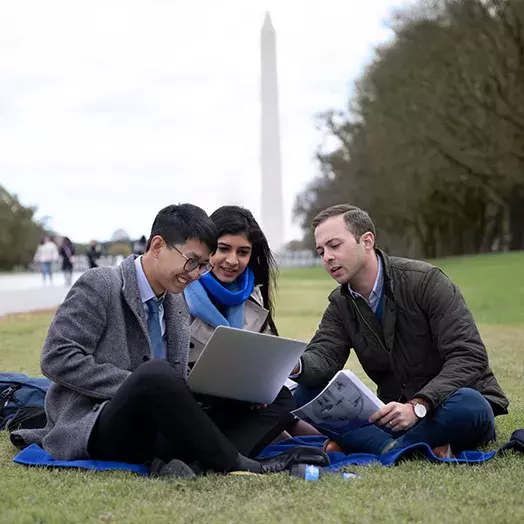
admissions
Johns Hopkins University’s Carey Business School and School of Advanced International Studies collaborate to offer new dual degree program
research
Whether or Not They Used Federal Payroll Loans, Firms’ Value Increased
Want to read more?
Financial aid resources for international students
Financial aid resources for international students

Admissions
Students come from all over the world to study at Johns Hopkins Carey Business School. As a global university, the diversity of our students is an essential element of our academic programs, fostering a shared understanding of the global economy.
Carey is one of the first 10 business schools where the entire Full-time MBA program is STEM-designated. With this advantage, international, full-time MBA students with F-1 visas may be eligible for Optional Practical Training (OPT) extensions. Many of our full-time Master of Science programs are also STEM designated, including:
- Business Analytics and Artificial Intelligence
- Finance
- Information Systems and Artificial Intelligence for Business
- Marketing
Financial aid for international students
The Johns Hopkins Office of Student Enrollment and Account Management, or SEAM, is the central office at Johns Hopkins University for financial aid, billing and payments, and registration. Carey students and applicants work with SEAM on a variety of questions and processes related to these topics. If you’re not sure when to contact SEAM, please reach out to Carey’s Admissions team to help you get in touch.
While federal aid is not available for international students, there are other ways to help pay for your degree. International students are considered for merit scholarships that are available in their program of admission, most of which do not require a separate application. Merit-based scholarships are limited, and competitive, and availability can vary. Students receiving scholarship funding are notified at the time of admission. Merit-based scholarships for international students include:
- MBA scholarship opportunities
- Endowed scholarships for both MBA and Master of Science students
- Reaching Out MBA Fellowships (separate application required)
International students can also take advantage of private scholarships, some of which are specific to international students. Carey also maintains a scholarship e-Bulletin which provides information on need-based and merit scholarships, grants, and fellowships offered by private agencies and organizations. If awarded, please notify us by submitting an online form via SEAM so we can congratulate you and update our records to reflect your accomplishments.
International students searching for private loans can use ELM Select to find, compare, and apply for loans with various lenders that best fit their financial situation. International students should select "International/DACA” to view lenders.
Contact Carey’s Admissions team with questions about merit-based scholarships awarded by the Office of Admissions. Please refer to SEAM for questions about private student loans.
Payment methods and plans
Johns Hopkins University offers several payment options. We accept international wire payments through Flywire or Convera. These vendors make it easy for international students to make payments in their own currency, using local payment methods, from the safety and convenience of their home. Both vendors offer various payment methods, a wide range of international currency options, competitive exchange rates, and the convenience of paying through a local bank. To learn more about online wire payments, please visit SEAM’s payment methods webpage.
With a U.S. bank account, international students can sign up for a monthly payment plan to pay their tuition and fees. Carey offers students two payment plan options to pay their tuition and fees. Please refer to Payment Schedule A and Payment Schedule B for the current options. Any questions about payment plans should be directed to SEAM.
For more information about payment plans and methods, please visit SEAM’s Payment Methods webpage.
Tuition rates
International student tuition rates are the same as those for domestic students. Costs for all academic programs are available on the tuition and fees webpage.
To receive an I-20 as an F-1 student, you are required to provide documented proof of funding equal to all tuition and living expenses for one academic year. Estimated living costs by program are listed on our tuition and fees webpage.
For your privacy and security, do not include bank statements or other financial documents with your application. Johns Hopkins’ Office of International Services will provide instructions on how to send this information after you accept your offer of admission and submit your enrollment deposit.
Questions?
Reach out to Carey’s Admissions team. Our team will put you in contact with SEAM on an as-needed basis.
Andrew Ching, PhD
CDHAI CHITA 2024
CHITA 2024

Center for Digital Health and Artificial Intelligence (CDHAI)
The Conference on Health IT and Analytics (CHITA)
The 14th Annual Conference on Health IT and Analytics (CHITA 2024), at the Johns Hopkins Bloomberg Center, 555 Pennsylvania Avenue, Washington, D.C., concluded on May 4, 2024. The conference was vibrant, engaging and inspiring.
Every year, CHITA brings together the best and brightest – scholars from over 40 top research institutes and leading figures in policy and practice. This summit serves as a critical platform for exploring the latest advancements in the design, implementation, and management of health information technology and analytics. Our objective is to promote a deeper understanding of strategy, policy, and systems in health IT and analytics, fostering innovations that make real-world impacts in business and policy.
As an ideal setting for fostering collaboration among leaders in academia, government, and industry, CHITA, in its 14th iteration, drew over 130 participants, offering a unique opportunity for networking and in-depth discussions.
Hosted by the Center for Digital Health and Artificial Intelligence, CHITA receives support from the Johns Hopkins Carey Business School, the University of Michigan School of Public Health, and the U.S. Agency for Healthcare Research and Quality.
We thank you for your engagement with CHITA 2024, for sharing your insights, creating deep and meaningful connections, and shaping the future of health IT and analytics. We look forward to seeing you at CHITA 2025 in Austin, TX.
Keynote Speakers
Aneesh Chopra
President, CareJourney
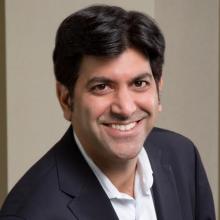
Aneesh Chopra is the President of CareJourney, an open data and analytics platform delivering a trusted, transparent provider ratings system anchored on value-based care measures. He served as the first U.S. CTO (2009-2012) and authored "Innovative State: How New Technologies Can Transform Government” (2014).
He serves on the Boards of IntegraConnect, UpStream Care, Virginia Center for Health Innovation, and Chairs the George Mason Innovation Advisory Council. He earned his MPP from Harvard Kennedy School and BA from The Johns Hopkins University. LinkedIn profile
David Sontag
Co-founder and CEO, Layer Health
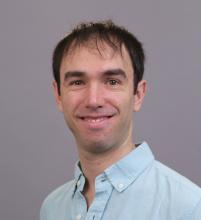
David Sontag is co-founder and CEO at Layer Health and a Professor at MIT in the Department of Electrical Engineering and Computer Science (EECS) and von Helmholtz Professor in the Institute for Medical Engineering and Science (IMES). He is also a principal investigator in the Computer Science and Artificial Intelligence Laboratory (CSAIL) at MIT. Dr. Sontag's research interests are in machine learning and artificial intelligence. As part of IMES, he leads a research group that aims to transform healthcare through the use of machine learning. Dr. Sontag joined MIT in 2017 from New York University, where he was Assistant Professor in Computer Science and Data Science from 2011 to 2016, and before this he was a postdoctoral researcher at Microsoft Research New England from 2010 to 2011. Dr. Sontag received the Sprowls award for outstanding doctoral thesis in Computer Science at MIT in 2010, best paper awards at the conferences Empirical Methods in Natural Language Processing (EMNLP), Uncertainty in Artificial Intelligence (UAI), and Neural Information Processing Systems (NeurIPS), faculty awards from Google, Facebook, and Adobe, and a NSF CAREER Award. Dr. Sontag received a B.A. from the University of California, Berkeley.
-
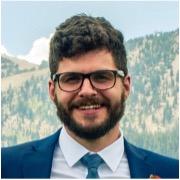
Roy Adams
Assistant Professor in the Department of Psychiatry
and Behavioral Sciences, Johns Hopkins UniversityRoy Adams is an Assistant Professor in the Department of Psychiatry and Behavioral Sciences at Johns Hopkins University. His research focuses on the development of new computational methods for working with observational health data – especially electronic health record (EHR) data – and the application of these methods to improve our understanding of and care for dementia and other psychiatric conditions. This includes work on a variety of computational problems in healthcare including risk predication, measurement error modeling, bias and fairness, and the adoption, impact, and reliability of clinical decision support tools.
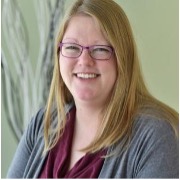
Laurie Buis
Associate Professor of Family Medicine and Information,
University of MichiganDr. Lorraine Buis is an Associate Professor in the University of Michigan (UM) Department of Family Medicine where her research focuses on the use of communication technologies for health promotion and chronic disease self- management. She is currently the Faculty Lead for the Telehealth Research Strategic Initiative in the UM Institute for Health Policy & Innovation and she also serves as Editor- in-Chief of the journal JMIR mHealth & uHealth. Dr. Buis completed a postdoctoral research fellowship at the Ann Arbor VA Health Services Research & Development Center of Excellence after obtaining her PhD in Mass Media from the Michigan State University Department of Telecommunication, Information Studies, and Media.
Additionally, she holds a Master’s of Science in Information degree with a specialization in Human Computer Interaction from the University of Michigan School of Information, as well as a Bachelor’s degree in Psychology from Michigan State University.
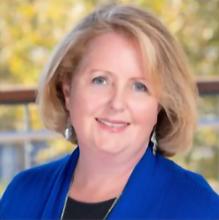
Joan Horenstein
Managing Director, Accenture Federal Services
Joan Horenstein is a Managing Director with Accenture Federal Services with 36 years’ experience delivering and leading Information Technology programs for government and commercial clients. Joan currently leads Accenture’s work for the Centers for Medicare and Medicaid Services and is Accenture’s Program Manager for CMS’ Federally Facilitated Exchange (FFE) program. FFE is the backbone of Healthcare.gov, processing over eighteen million enrollments annually and managing over 130 TB of data.
Throughout her career, Joan has led programs totaling over $3B and led teams of over eight hundred personnel from over thirty companies. Prior to leading Accenture’s work at CMS, Joan served as the commercial director for Accenture’s rapidly growing Federal Civilian Portfolio. She has worked across Federal Government, Financial Services, Health Insurance, Consumer Products, and Public Utilities markets. Her roles have included programming, testing, database design, IT strategy, finance, contracts, dispute negotiation, sales, and program leadership. Joan received a B.S. in Systems Engineering, with a concentration in Information Systems from the University of Virginia School of Engineering and Applied Science.

Dr. Keila N. Lopez
Associate Professor of Pediatrics in the Section of Pediatric Cardiology, Texas Children’s Hospital and Baylor College of Medicine
Dr. Keila N. Lopez, a native of Chicago, is an Associate Professor of Pediatrics in the Section of Pediatric Cardiology at Texas Children’s Hospital and Baylor College of Medicine. She completed her medical school at Rush Medical College in Chicago, Illinois, and then completed her residency in pediatrics at the University of Chicago. She subsequently completed the Commonwealth Fund Fellowship at Harvard School of Public Health in Minority Health Policy and Healthcare Management in Boston, Massachusetts. She completed her medical training by completing a fellowship in pediatric cardiology with a focus on cardiovascular imaging at Baylor College of Medicine/Texas Children’s Hospital in Houston, TX where she now resides.
Dr. Lopez’s research portfolio reflects a longstanding commitment to addressing health disparities and public health initiatives. She has presented nationally on health disparities, leading teams to conduct multidisciplinary work using large databases and GIS mapping to better understand the connection between health, socioeconomic status, neighborhood level factors and access to quality healthcare. She has participated in several community initiatives to help underserved populations, and was the only Latina and pediatrician appointed to Houston Mayor Turner’s COVID-19 Health Equity Response Task Force.
Given her public health and health policy background, she serves as an adjunct assistant professor in the Department of Sociology at Rice University and serves as a co-investigator for the Texas Children’s Policy and Advocacy Center. She is the creator and Director of the pediatric cardiology Transition Program, screening knowledge and transition skill gaps for youth with congenital heart disease to improve their ultimate transfer to adult care. Her NIH early career award created a mobile application that is a “portable transition program” to reduce health disparities during the transition process in patients with congenital heart disease and includes a transfer summary and activation tool. This project is now in a pilot testing phase to determine its acceptability, feasibility, and usability.
Dr. Lopez seeks to incorporate cardiology, public health, and minority health policy in order to develop research initiatives that directly inform health policy and improve the health care of minorities and underserved populations. She hopes to identify strategies to enhance and prolong the lives of those with CHD through surveillance, population-based research, education, health promotion, advocacy, and policy development.

Michael Rosenbaum
Chair and CEO, Arena
Mike has dedicated his career to restructuring our economy and our society to enable pathways of socioeconomic mobility, economic security, and dignity for every individual.
Mike founded and is the Chair and CEO of Arena Analytics, which applies AI to labor markets. Arena’s platform is used by 3.1 million unique healthcare employees and job applicants, or about 15% of the US healthcare workforce, increasing by about 600,000 people per year. Arena provides insights and predictive power into the likelihood an individual will achieve an outcome in a job, and in doing so improves employee retention, identifies candidates not otherwise known to an organization who would thrive there, helps determine optimal compensation and career trajectories, while reducing implicit bias based on race, class, and gender in hiring and promotion by 92%-99%.
Mike also founded and is the Executive Chair of Catalyte, a company that uses AI to build primarily tech workforces for large enterprises and governments. Catalyte’s platform identifies the most exceptional individuals without relying on resumes and other poor signals of quality, and unlocks their potential to thrive in technical and other roles. The average income of an exceptional professional identified by Catalyte prior to being identified is $25,000 per year, and 5 years later is $98,000 per year, with the average age when identified of 31.
In 2021, Mike ran for the Democratic nomination to be the next Governor of Maryland, with the vision of restructuring the state’s economy to enable a pathway to dignity for everyone. He dropped out of the race in November 2021, and since then has been working to change the underpinnings of the state’s political system to enable a bolder transformation around jobs and pathways into jobs in Maryland.
Prior to starting Catalyte and Arena, Mike received an Irving R. Kaufman Fellowship to support his work building the first version of what is now Catalyte and Arena’s respective analytics engines for talent selection. Earlier in his career Mike was a John M. Olin Fellow in Law and Economics at Harvard Law School and served at the White House as an economist. In addition to his academic work around what became Catalyte and Arena, Mike’s publications and research focused on the application of data to the most subjective areas of human endeavor. He has also served on a variety of civic and national boards related to race, poverty, and economic mobility, including Johns Hopkins University, the Markle Foundation’s Rework America Task Force, and the Baltimore Museum of Art, for which he chaired the search committee that drove its strategy of being a platform for underrepresented voices.
Mike lives in Baltimore with his wife and two daughters. He has a JD from Harvard Law School, an MSc in Economics from the London School of Economics and Political Science, and a BA from Harvard College, and from 1999-2000 he clerked for the Hon Diana Gribbon Motz on the US Court of Appeals for the Fourth Circuit.
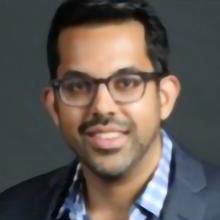
Prasanna (Sonny) Tambe
Associate Professor of Operations, Information and Decisions, The Wharton School of the University of Pennsylvania; and Faculty Co-Director, AI at Wharton
Prasanna (Sonny) Tambe is an Associate Professor in the OID group at the Wharton School at the University of Pennsylvania and Faculty Co-Director of AI at Wharton. His official Wharton website can be found here: https://oid.wharton.upenn.edu/profile/tambe/.
His research is focused in two key areas:
- Economics of technical (IT) labor markets: Studies the market for software developers, as well as how competition in these markets affect employment and innovation outcomes.
- Algorithms and HR: Studies how new, digital algorithms and data signals are being used in all aspects of HR, from hiring to retention.
His published papers have analyzed Internet-scale data from online job sites, career platforms, and other labor market intermediaries that collect fine-grained information on workers’ skills and career paths and on employers’ job requirements. This research has been published in a number of academic journals including Management Science, Information Systems Research, MIS Quarterly, California Management Review, Communications of the ACM, and Information Economics and Policy.
Professor Tambe received his S.B. and M.Eng. in Electrical Engineering and Computer Science from MIT and his Ph.D. in Managerial Science and Applied Economics from the Wharton School of the University of Pennsylvania.
-
Important Dates
Submission deadline: March 1, 2024
Notification to authors: March 15, 2024
Conference dates: May 3-4, 2024
Doctoral consortium: May 2, 2024 (submission deadline: March 29, 2024)
Early Bird Registration Ends: April 10, 2024.
-
In-person early bird before April 10, 2024
- Industry: $425
- Academic: $395
- Government: $150
- Clinical practitioner: $150
- Student: $150
In-person registration after April 10, 2024
- Industry: $475
- Academic: $445
- Government: $200
- Clinical practitioner: $200
- Student: $200
- Onsite registration: $500
Refund Policy: 100% if canceled by April 13, 2024
-
Papers were solicited on a wide range of topics including, but not limited to: health IT's adoption and impact; artificial intelligence (AI) for healthcare, healthcare analytics and big data; health information exchange and interoperability; new IT enabled organizational forms and delivery models; mHealth and patient empowerment; and quality transparency and public reporting.
The 2024 area of special interest was “Safe, Effective and Responsible Information Technology in Medicine” with a focus on the following topics: fair and responsible artificial intelligence for healthcare, large language models (LLMs) and healthcare, human capital in medicine, technology and health analytics, and healthcare disparities. Papers that included a focus on themes of fairness in AI for AHRQ priority populations (e.g., those with multiple chronic conditions, racial/ethnic minorities) received special consideration.
The conference included presentations, research round tables and research panels (with several brief presentations) and the track “Health IT and Analytics (HITA) in Action”, featuring brief case studies of innovations in HITA being applied for real-world impact.
-
Presenters, please find presentation format instructions below. We have created a CHITA 2024 Presentation Template, which we suggest, but do not require you to adopt. Presenters must upload their slides to Easy Chair or share at cdhai@jh.edu in both PowerPoint (for presenting) and PDF format (for sharing with other attendees) by midnight Tuesday, April 30, 2024. Please ensure all fonts are at least size 20 and do not overcrowd your slides with text.
Research "Regular" Sessions
Each presenter will present for 15 minutes, followed by 5 minutes of audience questions. It is important that presenters plan their remarks carefully, as we will adhere strictly to timing guidelines.
Please name the presentation file “CHITA2024-RS-X-Y-slides” where X is the number of the session and Y is the order of your paper as found in the workshop program: For example, session 1, 2nd presentation, the file should be named CHITA2024-RS-1-2-slides. Due by midnight Tuesday, April 30, 2024.
Speed Presentation
Each presenter will present for 5 minutes and up to 5 slides (1 title slide with up to 4 content slides), followed by moderator and audience questions to the full roundtable. It is important that presenters plan their remarks carefully, as we will adhere strictly to the timing guidelines.
Please name the presentation file “CHITA2024-RR-X-Y-slides” where X is the session number as found in the program, and Y is the order number of your paper as found in the program: if your presentation is 3rd in Session 14, the file should be named CHITA2024-RR-14-3-slides. Due by midnight Tuesday, April 30, 2024.
Session Chairs
Duties of the session chair:
» Announce the session and introduce the presenting authors and the 3-4 papers (i.e., read names and titles from the program) » Signal to let the presenter know when there are 2 minutes left
» Moderate the Q&A
» Conclude the session by thanking the participantsA CDHAI team member will be onsite to assist you with timekeeping and to maintain audio and visual technology.
CHITA does not assume copyright over work accepted for presentation.
If you have additional questions, please send us an email at cdhai@jh.edu.
-
The CHITA 2024 Doctoral Consortium was held on May 2, 2024, from 1-6 p.m. in Washington, DC. The Doctoral Consortium provided an opportunity for doctoral students to receive feedback on their research from senior researchers, network, and discuss career issues as they advance towards careers in academia.
2024 Faculty advisors included:
» Ritu Agarwal, Carey Business School, Johns Hopkins University
» Gordon Gao, Carey Business School, Johns Hopkins University
» Jeff McCullough, School of Public Health, University of Michigan
-
Hotel Accommodations for CHITA 2024: The Hyatt Regency Washington on Capitol Hill
The 14th Annual Conference on Health IT and Analytics (CHITA 2024) took place at the Johns Hopkins Bloomberg Center, located at 555 Pennsylvania Avenue, just a short walk from The Hyatt Regency Washington on Capitol Hill.
CHITA is produced in partnership with the University of Michigan School of Public Health and Harvard Medical School, with support from the Agency for Healthcare Research and Quality (AHRQ).


